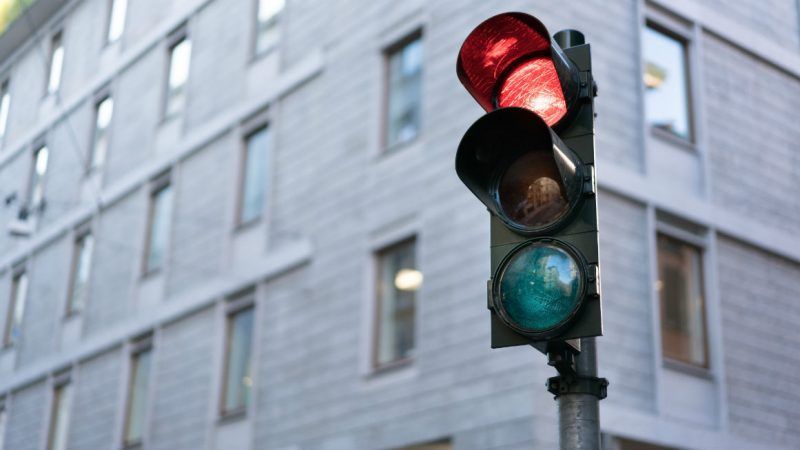The Illinois Comptroller Will Cease Collecting Red Light Camera Fines Amid Corruption Scandal
"As a matter of public policy, this system is clearly broken," says Comptroller Susana A. Mendoza.

The Illinois Comptroller's office will no longer help cities collect fines from red light cameras due to a pay-for-play investigation involving contractor SafeSpeed.
In 2017, ABC7 and the Chicago Sun-Times discovered that most of the drivers cited for running the light were actually making right turns, some even doing so after making a complete stop. In 2019, ABC 7 also found that the Chicago intersections that racked up the most fines had shorter timed lights, giving drivers less time to pass through legally. The investigation identified one intersection where the green and yellow lights were only up for a combined 20 seconds.
"As a matter of public policy, this system is clearly broken. I am exercising the moral authority to prevent state resources being used to assist a shady process that victimizes taxpayers," Comptroller Susana A. Mendoza announced in a press release.
The final straw, the press release indicated, was a federal investigation into red light contractor SafeSpeed.
Both the Sun-Times and the Chicago Tribune have reported on SafeSpeed's chumminess with local officials, including connections to a county commissioner's chief of staff as well as a former police chief; the latter was fired from his job in the police department after his relationship with the company came to light. These local officials worked as consultants to negotiate SafeSpeed's presence in various communities. At least one of the officials went on record saying that he received a kickback for every fine paid in certain communities.
When SafeSpeed sought to install red light cameras in Oakbrook Terrace, against the wishes of state bureaucrats, the decision was largely supported by state Sen. Martin Sandoval (D–District 11), whose campaign received large donations from SafeSpeed. Sandoval's relationship with SafeSpeed was just one of the questionable connections that triggered an FBI raid into his residence and office. (Sandoval announced his resignation in November amid the corruption scandal.)
"This kind of arrangement stinks—it's plain rotten," Mendoza added of the scandal. "It exploits taxpayers and especially those who struggle to pay the fines imposed, often the working poor and communities of color. We can't continue the practice of municipal employees directly pocketing cash from contracts they arrange."
In addition to concerns about corruption, studies all across the country have found that their local red light cameras have made little positive impact on safe driving practices. In 2014, Reason reported that Chicago's red light cameras may have traded in one traffic accident for another: While the rate of right-angle crashes causing injury at intersections decreased by 15 percent (much lower than the city's touted 47 percent), rear-end collisions causing injury rose by 22 percent. Additionally, 40 percent of the cameras were placed in intersections with low rates of injury-causing collisions.


Show Comments (22)